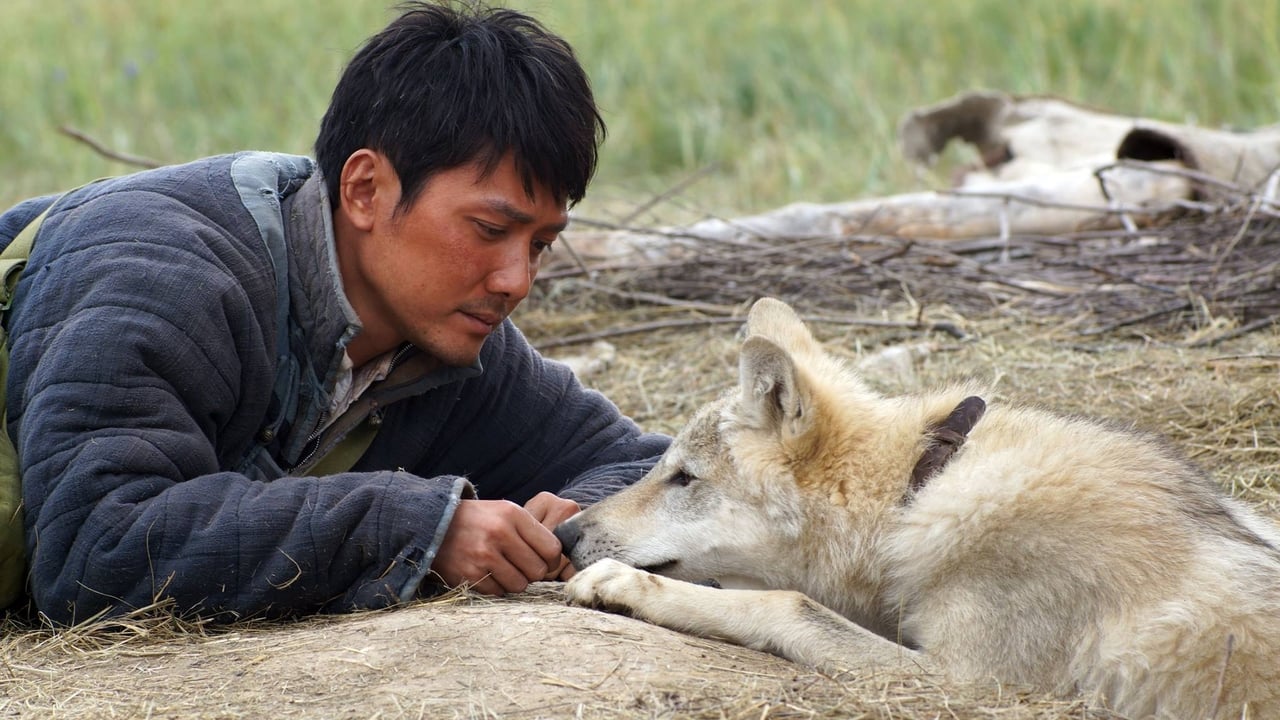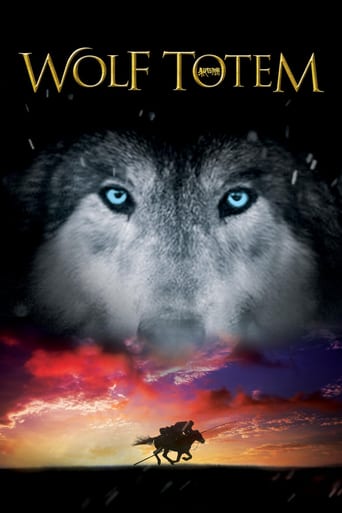

Photography apart, this is by far the worst movie I have watched in the last 10 years. The whole thing feels like a clean propaganda machine gone wrong. The only decent acting is from the anthropomorphized wolves as long as the hold the pose. Human actors are just plain bad, make up is theatrical, and stunts, when not part of a circus show are short of convincing. One could summarize the movie in a few words: Nature is beautiful and balanced, man destroys nature. Do we learn anything ? nope, that is the way it is, I am going back to China. I think it is time for a green eyed Jean Jacques Annaud to ride a shinny-vintage-museum-quality-tractor-with-clean-tires in the painted sunset.
... View MoreThis movie was essentially on ecology, environmental protection and on the dignity of nature and all creation - here exemplified by the Mongolian wolf. The tradition and culture of Mongolian tribes unfolded before the eyes of the chief protagonist, a city boy from Beijing sent to these realms by waves of the Cultural Revolution. The audience followed his adventures and drank in the beauty of the awe-inspiring grasslands, learnt about the (sometimes cruel) facts of life and were drawn into the joys and woes of the Mongolian herding tribe. Fascinated by the wolves, the Han student rashly tried raising a wolf cub. His actions led to unimaginable consequences and irreparable damage as he found himself accomplice to ruining the Mongolian people and the grasslands he grew to love. In the end with a heavy heart we witnessed the darkening destiny of the "great life" of the grassland, ever intertwined with that of the "little lives" of all life forms dependent on it. The movie tried to portray that there was a faint speck of light and hope with the return of the captive wolf, though it was not really comforting. Fabulous acting on the part of the wolves; with discernible laudable effort and bonding between trainers and the animals. Worth watching despite the unflattering take on humanity and greed, if only for the noble creatures of its namesake.
... View MoreIt was unprecedented that the film market in China was so prosperous during Spring Festival. Seven blockbusters of different styles were released on the first day of Chinese New Year that created more than 170 million earnings in this 7-day vocation.The box office earnings of whole year in China was only about 200 billion, dating back to last decade when the market was just awake, which was difficult to compare with the data today. In that period, nevertheless, Dadi cinemas picked the digital screening strategy, even though it was much higher cost than film screening, to make the second- tier and third-tier cities that with larger population enjoy fair treatment on watching new movies, and therefore promote the development of Chinese film market. This investment mode of Dadi Media was used to be bantered as "Quixotic Courage", what meant the commercial mode was lightly regarded. However, it was dumbfounded that Dadi insisted on breaking high-price barriers and making ticket prices more reasonable for audiences.All decisions Dadi made were depended on the inherent attribution of films that they would be led back to the source -- the public. Keeping the original intention that "Make movies ubiquitous, make good movies ubiquitous" in mind, Dadi Cinemas sacrificed immediate interest and contributed to prosperous film markets in the second-tier and third-tier cities, aiming at spreading culture, mind and art of movies, keeping infusing blood with dream into Chinese films. The desire for "good" movies in Chinese market was increasingly intense after explosive growth these years. It was comforting that movies during this Spring Festival satisfied audiences' needs for fierce actions, extremely cute and all-age theme. In addition, movies achieve our dreams on showing feelings, conveying the belief and transferring power -- in case of watching the movie Wolf Totem. New perceptions on savagery, humanity, survival, freedom, dignity and faith, will all be found after watching this movie.Indeed, Dadi Cinemas are looking forward a new start from The Wolf Totem, a new start of film art that need to be put thought into it. As a consequence of this expectation, Wolf Totem was released averagely 2 percents more than it occupied the box-office proportion in Dadi Cinemas. During the 7-day vocation of this Spring Festival, more than 460 thousand audiences have watched this movie in Dadi Cinemas in more than 130 cities around China. The germination of Chinese film market has come to this era while audiences discussing ardently about the movies they just watched in Dadi Cinemas near their home, such as Wolf Totem, Dragon Blade, The Man From Macao 2, and so forth.It is reasonable to believe that when more practitioners make sacrifice for the art of film, such as Wolf Totem and movies in the future that belong to film culture, art, this era, and all audiences who love movies, the development of the film market in our country will be inevitable healthy and permanent.Even though the strength of Dadi is possibly not strong enough right now, movies that obey the heart and keep unique style are definitely respected. It is a new step of Dadi, from loving the "Wolf" in the Year of the Goat.
... View MoreIt saddens me that this film will not receive a wider audience. With an English title of "Wolf Totem" very few outside of France or China will be tempted to see it, but it is their loss.Wolf Totem manages to bring to the big screen the majesty and mystery of wolves. But it is much more than a National Geographic or Animal Planet documentary. (Although those in themselves would be a great success.) It also invites us into the world of Inner Mongolia and tells a compelling tale of human love and loss. This is not Le Renard et L'infant (The Fox and the Child). It succeeds in telling a much grander tale. The acting is all very believable and unlike the usual over-the-top soap opera-esque fare available in most Chinese cinema.But come for the wolves. I could howl their praises all night long.
... View More